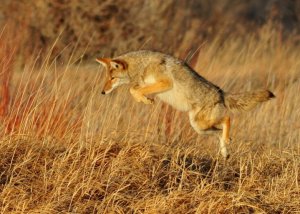dpwspringer
Member
- Location
- Georgia
Georgia Coyote Challenge
In order to encourage the taking of coyotes from March to August, the Georgia Department of Natural Resources’ Wildlife Resources Division is introducing the Georgia Coyote Challenge.
Each coyote killed, up to five (5) a month per hunter/trapper, will earn an entry into a monthly drawing for a lifetime license (or equal credit for purchase of hunting/fishing licenses)*.
Currently, scientific research suggests that removal of coyotes during the spring and summer is the most advantageous time to reduce the impact of predation on native wildlife. We want to encourage coyote removal efforts during this critical period.
The coyote (Canis latrans) is a non-native predator that can be found in every county in Georgia and has the unique ability to live in a variety of habitats. Trapping and/or hunting are legal and recommended methods for managing coyotes. Because they did not historically live in Georgia, there is no closed season for their harvest.
. http://www.georgiawildlife.com/hunting/resources/CoyoteChallenge
In order to encourage the taking of coyotes from March to August, the Georgia Department of Natural Resources’ Wildlife Resources Division is introducing the Georgia Coyote Challenge.
Each coyote killed, up to five (5) a month per hunter/trapper, will earn an entry into a monthly drawing for a lifetime license (or equal credit for purchase of hunting/fishing licenses)*.
Currently, scientific research suggests that removal of coyotes during the spring and summer is the most advantageous time to reduce the impact of predation on native wildlife. We want to encourage coyote removal efforts during this critical period.
The coyote (Canis latrans) is a non-native predator that can be found in every county in Georgia and has the unique ability to live in a variety of habitats. Trapping and/or hunting are legal and recommended methods for managing coyotes. Because they did not historically live in Georgia, there is no closed season for their harvest.
. http://www.georgiawildlife.com/hunting/resources/CoyoteChallenge


